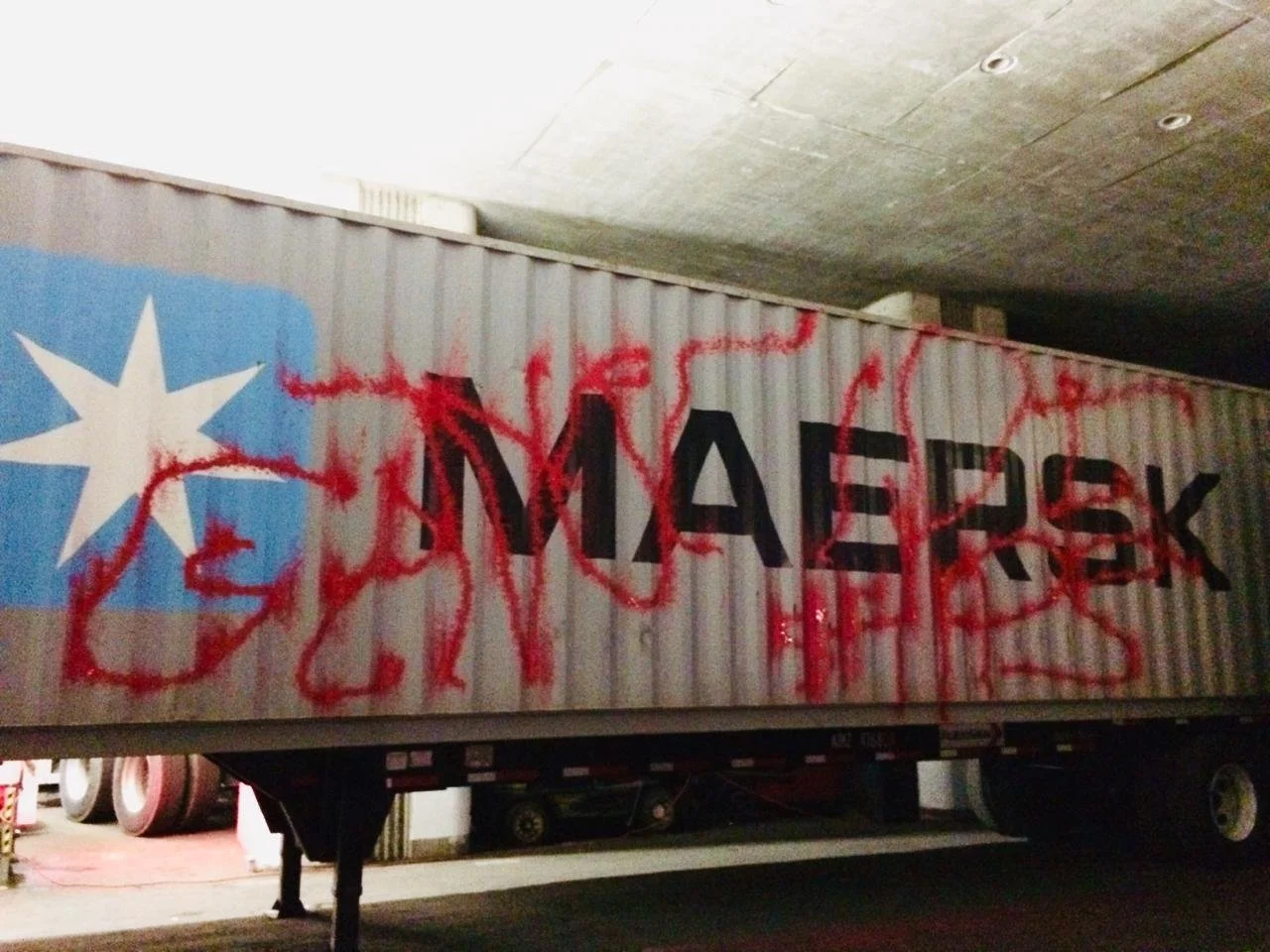Anarchist Group Targets Maersk in Bay Area Sabotage, Accusing Shipping Giant of Fueling Genocide
Executive Summary
A clandestine anarchist cell in the Bay Area has claimed responsibility for vandalizing Maersk shipping containers in Oakland, denouncing the global logistics company as a critical enabler of Israeli military operations in Gaza. Framing their act as resistance against imperialism and genocide, the group links Maersk to a legacy of military supply chains stretching from apartheid South Africa to present-day Palestine.
Analysis
In a statement posted on radical platform Unity of Fields, anonymous activists detailed a sabotage operation carried out on May 29 in downtown Oakland, targeting shipping containers belonging to Maersk, the world’s second-largest logistics firm. Their graffiti—declaring “MAERSK SHIPS GENOCIDE”—was both protest and provocation, meant to draw public scrutiny to Maersk’s commercial ties with Israel’s Ministry of Defense.
The statement accuses Maersk of facilitating war crimes by transporting weapons systems, armored vehicle parts, and logistical supplies to Israel. Citing shipment data and investigative reports from sources like Declassified UK and The Intercept, the anarchists argue that Maersk is integral to sustaining Israeli air operations, particularly through deliveries of Lockheed Martin–produced F-25 fighter jets used in Gaza airstrikes. One passage from the communique states: “Maersk’s legacy of participating in and profiting off genocide, imperialism, and colonialism also includes its transportation of arms during apartheid-era South Africa, cooperation with Nazi Germany, and equipment supply during the Vietnam War.”
This targeting of Maersk aligns with broader calls from the pro-Palestinian and anarchist left to disrupt logistics operations linked to the military-industrial complex. The group’s emphasis on “time = money” underscores their intent to economically injure companies viewed as war profiteers through direct action. Their message moves beyond symbolic protest, advocating for decentralized, economically disruptive action—“a thousand inconveniences”—that undercut corporate bottom lines and public image.
Interestingly, the group uses Maersk’s own corporate language on sustainability and human rights against it, highlighting the company’s stated values in contrast with its defense-related contracts. This rhetorical strategy seeks to expose perceived hypocrisy, particularly as Maersk publicly promotes itself as a leader in ethical shipping and environmental responsibility.
The action mirrors a growing global trend of militant solidarity tactics used in support of Palestine. From sabotage and graffiti to port blockades and labor refusals, radical actors are escalating their tactics as civilian deaths in Gaza mount and traditional protest channels are seen as ineffectual. The statement’s final appeal—“Can you imagine the world where every shipment of weapons is no longer?”—frames their vandalism as part of a moral crusade to dismantle the machinery of war at its logistical foundations.
Whether this incident will trigger further investigations, security overhauls, or copycat actions remains to be seen. But it is a clear indicator that for some factions of the pro-Palestinian movement, resistance now includes direct economic confrontation with corporations they view as complicit in systemic violence. Maersk, despite its multinational insulation, has found itself directly in the ideological crosshairs of a new generation of radical actors.


